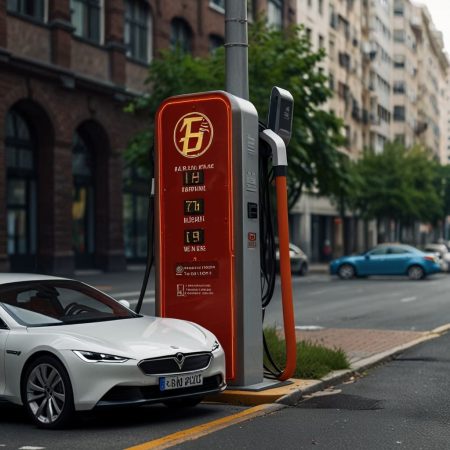Electric cars are super popular these days, and for good reason! With everyone worried about the environment and technology getting better all the time, electric vehicles (EVs) are like a knight in shining armor for a cleaner future. The advantages and disadvantages of electric cars should be considered. But, just like anything else, electric cars have their pros and cons. Let’s take a look at what makes them awesome and what might make you hesitate before buying one.
What are the Advantages and Disadvantages of Electric Cars?
Electric cars, also called EVs, are like regular cars, but instead of gasoline or diesel, they run on electricity. There are a few different types:
- Battery electric vehicles (BEVs): These are all-electric cars that only use batteries for power.
- Plug-in hybrid electric vehicles (PHEVs): These cars have a gasoline engine and an electric motor, and you can plug them in to charge the battery.
- Hybrid electric vehicles (HEVs): These cars also have both an electric motor and a gasoline engine, but you can’t plug them in to charge the battery.
Electric cars have been around for a long time, but they’re just becoming popular now because batteries are getting better, people are more worried about the environment, and governments are giving people deals to buy them.
Why are Electric Cars Awesome?
- Save the Planet! Electric cars don’t have any exhaust fumes, which means they don’t pollute the air we breathe.
- Save Money on Gas! Electricity is generally cheaper than gasoline, so filling up your electric car costs way less than filling up a regular car. Plus, if you have solar panels at home, you can charge your car for free!
- Less Maintenance! Electric cars have fewer parts than gasoline cars, so they need fewer repairs and oil changes. This saves you money and time at the mechanic.
- Speedy and Quiet! Electric cars have super fast acceleration and are very quiet because they don’t have a loud engine.
- Be Independent of Gas! Electric cars can be charged with electricity from many sources, including renewable energy sources like solar and wind power. This means you’re not reliant on fossil fuels.
- Government Help! Many governments offer tax breaks and rebates to people who buy electric cars, making them more affordable.
Advantages of Electric Cars: A Greener and Cost-Effective Choice
Environmental Benefits, Zero Emissions
Electric cars have a remarkable advantage: they produce zero tailpipe emissions. Unlike traditional gasoline-powered vehicles, which release harmful pollutants like carbon dioxide (CO2), nitrogen oxides (NOx), and particulate matter, electric cars keep our air cleaner.
Reduced Carbon Footprint
When you drive an electric car, you contribute to a healthier planet. Especially if you charge your car using renewable energy sources like wind or solar power, your carbon footprint shrinks. This helps combat climate change and reduces air pollution.
Cost Savings, Lower Fuel Costs
Charging an electric car costs significantly less than filling up a conventional vehicle with gasoline or diesel. Plus, if you have solar panels at home, you might even charge your car for free!
Reduced Maintenance Expenses
Electric cars have fewer moving parts compared to traditional internal combustion engine vehicles. Say goodbye to oil changes! Their brake systems also last longer due to regenerative braking. As a result, you’ll spend less on maintenance and fewer trips to the mechanic.
Performance Benefits, Instant Torque
Electric motors provide instant torque, which means rapid acceleration from a standstill. Driving an electric car feels more responsive and fun compared to traditional cars.
Quiet Operation
Electric cars run quietly, reducing noise pollution. Enjoy a peaceful driving experience and contribute to a quieter urban environment.
Energy Independence, Reduced Reliance on Fossil Fuels
By using electricity (which can come from various sources, including renewables), electric cars help decrease our dependence on fossil fuels. This not only benefits the environment but also enhances energy security.
Government Incentives, Tax Credits and Rebates
Many governments offer financial incentives to encourage electric vehicle adoption. These can include tax credits, rebates, and grants, significantly reducing the initial cost of purchasing an electric car.
HOV Lane Access
In some regions, electric car owners can use high-occupancy vehicle (HOV) lanes even when driving alone. This saves time and reduces commute stress.
Disadvantages of Electric Cars: What to Consider
Limited Driving Range
Most electric cars can’t go as far on a single charge compared to gasoline-powered cars. While newer models are improving, this shorter range can be a concern for frequent long-distance drivers.
Range Anxiety for Long Trips
Ever worry about running out of battery before finding a charging station? That’s range anxiety! It’s a common concern for electric vehicle (EV) drivers, especially during long journeys. Planning is essential.
Charging Infrastructure Challenges
Charging stations are growing in number, but they’re not as widespread as gas stations. Finding a charging spot, especially in rural areas, can be tricky.
Longer Charging Times
Charging an electric car takes more time than refueling a gas car. Even with fast chargers, it can take 30 minutes to an hour to reach 80% capacity. Patience is key, especially on road trips.
Higher Initial Costs
Electric cars often come with a higher price tag due to battery costs. But don’t fret—prices are dropping as technology advances and production scales up.
Potential Long-Term Savings
Despite the upfront cost, electric cars can save you money over time. Lower operating and maintenance expenses add up. Look beyond the purchase price to see the bigger picture.
Battery Life and Replacement
EV batteries degrade over time, affecting the car’s range. Manufacturers offer warranties, but once they expire, replacing a battery can be pricey.
Environmental Impact
Battery production requires raw materials like lithium, cobalt, and nickel. Mining and processing these materials can harm the environment. Ethical sourcing is crucial.
In last, electric cars are pretty cool! They’re good for the environment, can save you money on gas, are fun to drive, and let you ditch relying on gas stations. The advantages and disadvantages of electric cars should be considered. However, they also have some downsides, like not going quite as far on a single charge and needing special stations to refuel (which can be tricky to find sometimes). Plus, they tend to cost more upfront than regular cars. The good news is that as technology gets better and there are more charging stations around, these challenges are shrinking. This all means electric cars are becoming a more and more tempting choice for drivers everywhere.
FAQs Navigating Common Queries
What is the average range of an electric car?
The average range of an electric car varies widely depending on the model and battery capacity. Most modern EVs offer a range between 150 to 300 miles on a full charge, with some high-end models exceeding 400 miles.
How long does it take to charge an electric car?
Charging times can vary depending on the type of charger used. A standard home charger (Level 2) can take 8-12 hours for a full charge, while fast chargers (DC fast charging) can charge up to 80% in 30 minutes to an hour.
Are electric cars cheaper to maintain than gasoline cars?
Yes, electric cars generally have lower maintenance costs because they have fewer moving parts and don’t require oil changes. Brake wear is also reduced due to regenerative braking systems.

